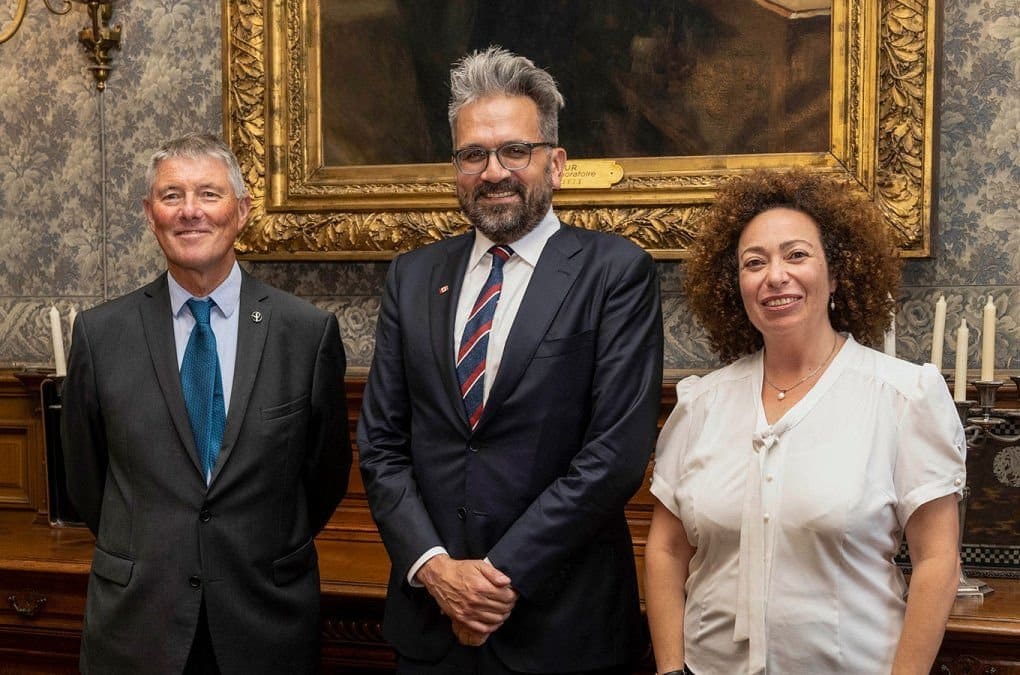The collaborative agreement was signed more than six months ago on October 21, 2022, but there had still been no meeting between French and Californian researchers. These three days provided an opportunity, via symposiums, meetings, receptions organized at the French Consulate and visits to installations and scientific platforms, to share ideas about the rationale underlying this partnership, namely, the anticipation, understanding and treatment of infectious diseases. This rationale will be studied by the future Institut Pasteur-UCSF QBI Center of Excellence in Emerging Infectious Diseases.
Fundraising to support the creation of this center is being carried out with US philanthropists; the University of California has, however, already made available the necessary premises. The Institut Pasteur and the UCSF QBI worked together during the Covid-19 pandemic. The UCSF QBI, which operates an antiviral drug platform but has no suitable laboratories or expertise, used to send their drug candidates to Paris to be tested.
“The pandemic has shown the need for improved preparation to deal with emerging infectious diseases, of whatever origin (virus, bacterium, parasite, fungus and so on). This center of excellence has the advantage of combining the Institut Pasteur’s unparalleled knowledge of pathogens with a biology center operating state-of-the-art technology to quantify the relationship between the host and pathogens, using biophysical and biochemical parameters,” said Carla Saleh, Scientific Co-Director of the partnership and Head of the Viruses and RNA Interference Unit at the Institut Pasteur.
This center of excellence for the study of emerging infectious diseases is expected to gather together over time between 80 and 100 scientists, or possibly as many as 200 over the next 10 years.
“The collaboration between the Institut Pasteur and the UCSF QBI can really provide additional expertise and lead to a new way of dealing with pathogens, at every level. Our ambition is to become the key global center for the prevention, understanding and treatment of emerging infectious diseases,” Carla Saleh, Scientific Co-Director of the Partnership and Head of the Viruses and RNA Interference Unit at the Institut Pasteur.
Spring of 2023 saw the launch of two programs. The first program grants three-month “mini-sabbaticals” to between six and ten applicant heads of laboratories and established researchers, on both sides of the Atlantic.
The second program is intended for women from the countries in the network most in need of support. This year at least three female researchers will spend six months, all expenses paid, in San Francisco, in order to further their understanding of how to analyze biological databases. They will also learn how to make funding applications and request grants that may prove useful in their careers.
An initial round of hiring for the research team is planned to take place in the spring of 2024, but more are expected over time within the center. The long-term aim is to select twelve research directors, each of which will head up their own program.
Moreover, a Californian delegation will be in Paris from April 12 to 14, 2023. A total of twenty-two French and US researchers will interact and present their research programs in speed dating mode. As a member of the Pasteur Network, the Institut Pasteur works with 32 other institutes around the world. The UCSF QBI is also supported by a worldwide network of 33 institutions.



